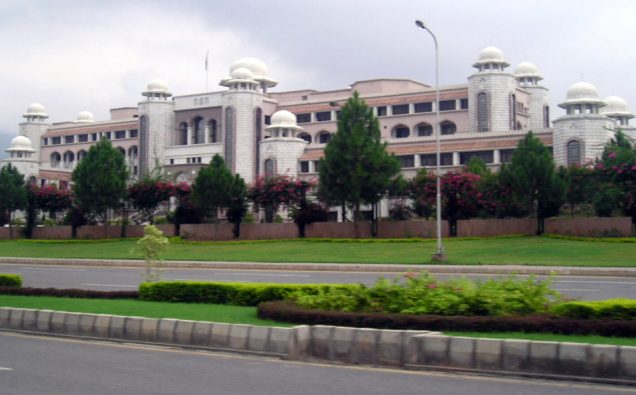
Pakistan, which in the past faced accusations of supporting the Afghan Taliban during the 1990s bloody civil war, has adopted a cautious approach to recognizing the group as new rulers after the group swept to control of Kabul and almost the entire country.
Islamabad’s ambassador in Washington says that their country would go with the international community toward recognizing the new Taliban-led government in Afghanistan.
Pakistan was one of the three countries to recognize the Taliban government during the 1990s but the militant group’s conservative policies, denial of rights to women and minorities, and hosting al-Qaeda terrorists, the perpetrators of the 9/11 attacks on the U.S. resulted in a blowback.
Islamabad often found itself at the receiving end when it came to the issue of terrorism emanating from Afghanistan during much of the time after the U.S. invasion of Afghanistan in late 2001.
But during the last two years of Trump’s presidency, the U.S. got Pakistan’s help in securing a deal with the Taliban that would see the pullout of American troops from Afghanistan. It’s under that deal that President Joe Biden has worked to complete the withdrawal of American troops.
The other part of the deal was political reconciliation between the Taliban and President Ashraf Ghani’s government in Kabul, which never happened and the Taliban stepped up their fight against Kabul, resulting in Ghani’s fleeing the country and leaving it to the Taliban weeks ahead of the U.S. deadline of August 31 on completing the withdrawal.
In Washington, Ambassador Asad Majeed Khan said Tuesday Pakistan is working with the United States on the fast-paced developments in Afghanistan.
“We have been working closely with the international community, including the United States, and we will follow the lead of the international community in seeing how the situation evolves in Afghanistan,” the Pakistani envoy told CBS News when asked if Pakistan would recognize the Taliban government.”
Meanwhile, U.S. Secretary of State Antony Blinken spoke to Pakistani Foreign Minister Shah Mahmood Qureshi Monday and discussed with him how to bring peace to Afghanistan.
Meanwhile, the Taliban spokesman Zabihullah Mujahid has said that the Taliban movement won’t allow territory of Afghanistan ‘to be used against anybody or any country.
“We don’t want any internal or external enemies,” Mujahid told a news conference in the Afghan capital, Kabul on Tuesday.
The group previously declared an “amnesty” across Afghanistan and urged women to join its government.
Shocked Afghans in the capital, who opposed the Taliban ideology and practices and expected the Ghani government to stop the militant group’s march, have been nervously trying to get out of the country.
The scenes of desperation at the Kabul airport show how the Afghans are trying to get out of the country.
The U.S. is working to evacuate its civilian staff from Kabul as flights resumed after they were suspended on Monday.
















